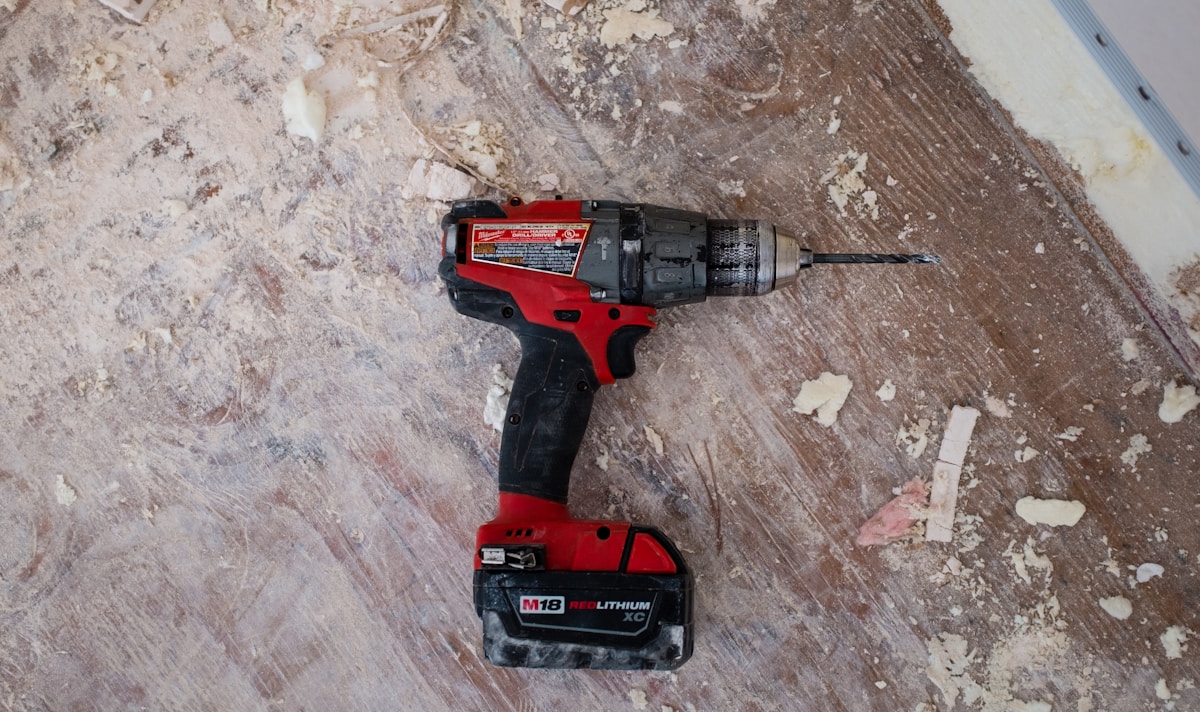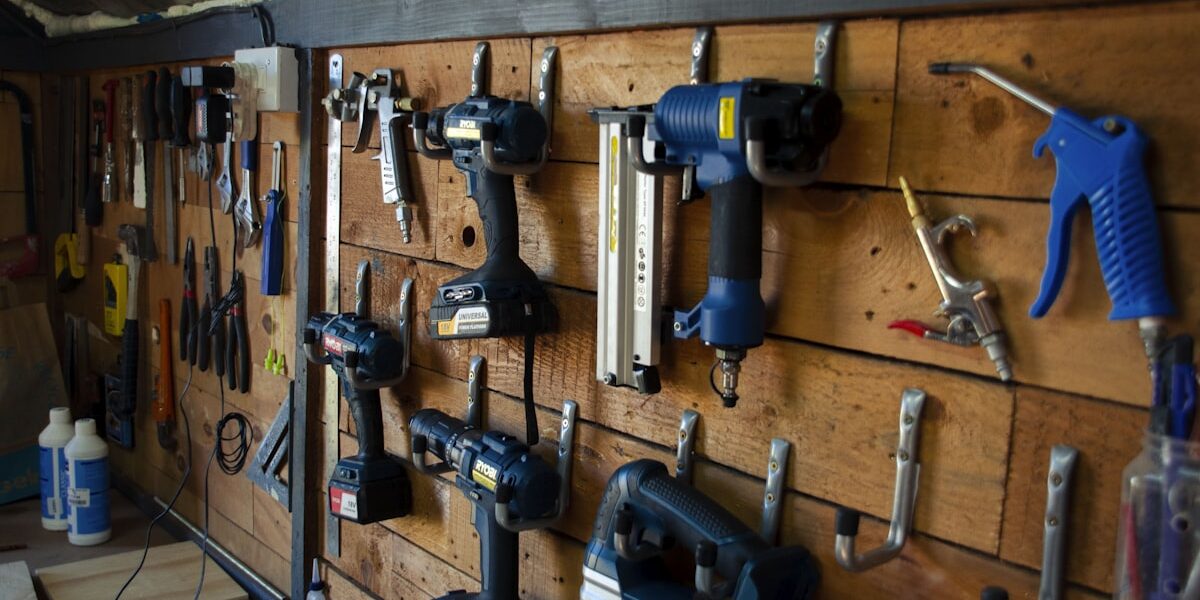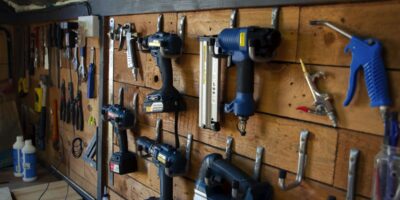Exploring Prominent Tool Brands
Picking the right tool brand has gotten complicated with all the marketing hype flying around. As someone who’s spent way too many hours (and dollars) in tool aisles, I learned everything there is to know about what actually matters when you’re choosing between brands. Today, I will share it all with you.
DeWalt
DeWalt is one of those names you just can’t avoid on a jobsite. You know the yellow-and-black look — it’s everywhere, and there’s a reason for that. They’ve been at it since 1924, and their brushless motor tech has honestly changed the game for efficiency.

Contractors swear by DeWalt, and I get it. The durability is legit. They’ve got drills, saws, impact drivers — pretty much the whole lineup. Their FlexVolt series is a standout because the batteries can actually switch voltages, which is super handy when you’re juggling different power needs on one project.
Makita
Makita’s a Japanese company that’s been around since 1915 — they started out doing motor sales and repairs before launching their first power tool in the late ’50s. Since then? They’ve expanded like crazy.
Their battery tech is where they really shine. The LXT platform keeps things running longer than you’d expect, and their ergonomic designs genuinely reduce fatigue. If you’re swinging a tool all day, that matters more than people realize.

Milwaukee
Milwaukee Tools has been building heavy-duty stuff since 1924. You can spot the red and black from across the shop. They were pioneers in the cordless space, and they haven’t let up.
The M12 and M18 systems give you a ton of flexibility — one battery platform covering dozens of tools. That’s what makes Milwaukee endearing to us tool nerds — they just keep expanding the ecosystem without making you start over.
Bosch
Bosch is the German engineering brand that shows up in just about every trade. Founded in 1886, they’ve been refining tools for over a century, and the precision shows.
They pour money into R&D, and it pays off. Anti-vibration systems, the Syneon chip for smart energy management — their cordless tools punch above their weight on battery life. If you care about tech in your tools, Bosch delivers.
Black+Decker
Probably should have led with this section, honestly, because Black+Decker is where a lot of us got our start. They invented the first portable electric drill back in 1910, so they’ve got some serious history.
Their tools are more affordable, which makes them perfect for weekend warriors and folks just getting into DIY. They’re not going to compete with pro-grade gear on durability, but for the price? You’re getting solid value.
Stanley
Stanley is the hand tool king. Tape measures, hammers, utility knives — they’re in practically every toolbox I’ve ever opened. Their merger with Black & Decker gave them even wider reach.
They keep things dependable without breaking the bank. The FatMax line is worth mentioning because it bumps up the performance and durability a notch from their standard offerings.
Ridgid
Ridgid is the go-to for plumbing and HVAC pros. It’s part of Emerson Electric, and that red branding is instantly recognizable in specialty trades.
Their pipe wrenches and threading machines are built like tanks. If you work with pipes for a living, you probably already own at least a couple Ridgid tools. They’ve earned that reputation through sheer ruggedness.
Kobalt
Kobalt is Lowe’s house brand, launched in 1998. They’ve carved out a nice spot by offering decent performance without the premium price tag.
For everyday hand and power tool needs, they’re tough to beat on value. They’ve been ramping up their brushless and cordless options too, which is smart — that’s where the market’s heading.
Craftsman
Craftsman has roots deep in American DIY culture. It used to be a Sears exclusive, but Stanley Black & Decker picked it up and gave it new life.
The lifetime warranty on their hand tools is still a big deal — it tells you they stand behind what they make. They’ve also expanded into power tools and outdoor equipment, so the brand covers a lot more ground now.
Snap-On
Snap-On is the premium tier. You’ll find their stuff in automotive shops more than anywhere else, and mechanics tend to get a little obsessive about collecting them (I don’t blame them).
They’ve been around since 1920, and yes, the prices are higher. But the precision and reliability justify it if tools are your livelihood. There’s a reason the Snap-On truck is like an ice cream truck for gearheads.
Hilti
Hilti is for the construction and building maintenance crowd. They’re headquartered in Liechtenstein, which is kind of a fun fact, and they’re all about innovative solutions for tough jobsite problems.
Their warranty and repair programs are excellent. Rotary hammers, measuring tools — they specialize in the stuff that needs to work perfectly every single time.
RYOBI
RYOBI is the DIY enthusiast’s best friend. Their tools won’t drain your wallet, and the One+ battery system means one set of batteries works across a huge range of tools.
From drills to chainsaws, they cover the bases. They’re not built for daily professional abuse, but for home projects and weekend builds, RYOBI hits the sweet spot between price and capability.
Festool
Festool is where woodworkers start getting starry-eyed. German-made, precision-focused, and absolutely top-shelf quality. If you’re serious about woodworking, you’ve at least thought about buying a Festool.
Their dust extraction systems are genuinely impressive — cleaner shop, safer lungs. And the way their products work together as a system just streamlines everything. It’s an investment, but one that pays off in the quality of your work.
Matco Tools
Matco is another brand that lives and breathes automotive repair. They sell through franchise distributors, which means your rep actually knows your shop and what you need.
Diagnostic tools, wrenches, sockets — they keep rolling out new stuff tailored to what mechanics actually deal with day to day. It’s a more personal buying experience than walking into a big box store.
At the end of the day, the “best” tool brand depends entirely on what you’re doing and what you need. Price, durability, comfort, battery ecosystem — all of it factors in. Hopefully this rundown helps you figure out which brands are worth a closer look for your particular situation.
Recommended Woodworking Tools
HURRICANE 4-Piece Wood Chisel Set – $13.99
CR-V steel beveled edge blades for precision carving.
GREBSTK 4-Piece Wood Chisel Set – $13.98
Sharp bevel edge bench chisels for woodworking.
As an Amazon Associate, we earn from qualifying purchases.

